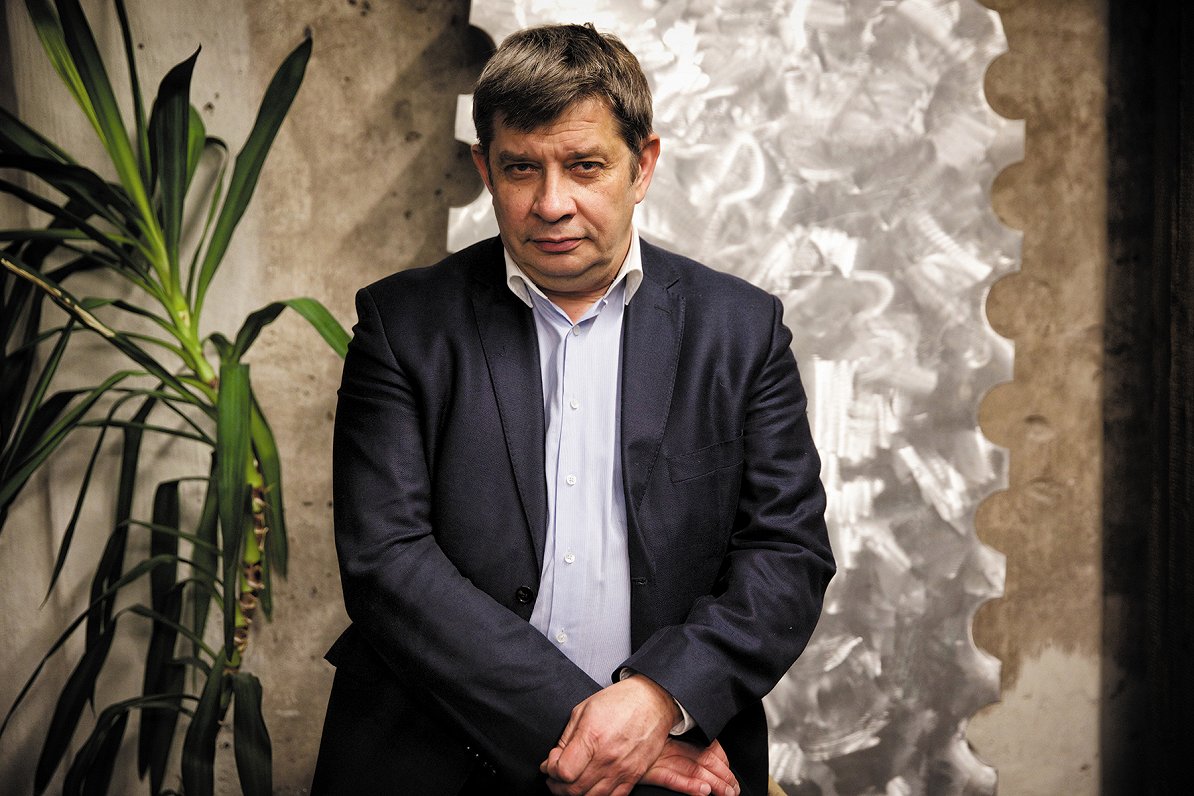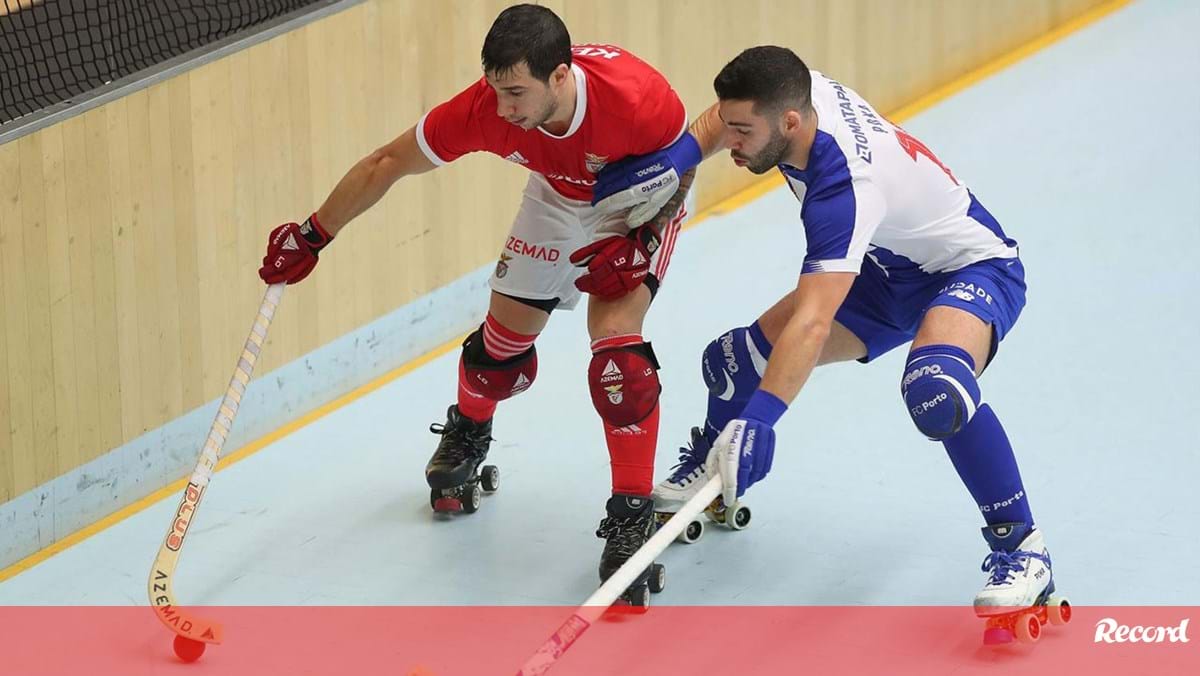On May 28, Arturs Maskats’ new accordion concert will have its world premiere on Latvian Radio 3 “Klasika”. It will be performed by the Latvian National Symphony Orchestra under the direction of conductor Andris Poga at the grand concert of Latvian symphonic music, but the soloist will be the world-famous Ksenija Sidorova, for whom this concert was also written. Due to the pandemic, face-to-face applause is not allowed. “Perhaps everything that has happened to us will make us more aware of the value of time. Also the value of human contacts, which can only be appreciated if it is taken away from you,” says the composer.
Liene Jakovleva: It’s a rather confusing moment to talk to you about a new job, from which no note has been heard, but with the hope that you yourself will have something to tell about this opus. Have you created a concert for an accordion with an orchestra – is your accompaniment “what the wind said over the sea” a name or just a clue that will make us think? Will it be capitalized?
Arthur Muscat: Yes, it will definitely be capitalized (laughs). It will also be printed that the concert is dedicated to our outstanding artist Ksenia Sidorova-Arizaga. The work was ordered quite a long time ago, and I have written the concert in about three walks over several years. There have been various other works in the middle, but that is the time and mode now. The premiere has been postponed three times due to various circumstances, including a pandemic. It was planned for the Riga Festival already in the summer of 2020 and before that. So I’ve written it for stages that scared me too, because usually the opus has to start one day and end one day.
So every time new posters show up, you put something for this concert and took it off?
I came back to it again. Also this spring –
knowing that this premiere would probably happen anyway, and realizing that at least there would be a record, I went back to this opus and it turned out – there is a lot to do!
We couldn’t work with Ksenia as usual, when she works with the artist on an extended opus – everything happened “Zoom”, because Ksenija lives with her family in Madrid. Only now she has her first trip to Latvia after a long period of time. But the concert is a close collaboration, because the accordion is a much finer thing than one might imagine – with all the possibilities it has. With a large symphony orchestra, not so much work has been done for it, because it is also a very cunning instrument.
But not in your creativity!
Well, yes – I may have known it, but not in the form it is here. Not on such a large scale.
So what did the wind say about the sea?
As Ksenia and I understood –
it is definitely the Baltic Sea. This is the climate here, these storms and drives, these moonlights. These are exactly these answered and unanswered novels, because in a South Sea atmosphere, things would be different.
This time the concert is like a multi-part symphonic poem, in which very different images are arranged. And that was also my main concern – whether the accordion will balance with the big symphony orchestra, but yesterday the sound director gave a rather reassuring answer that everything can be heard. The main thing is to hear the whole Ksenia score, which she has studied very carefully and at the same time inspired me very much.
But programmatism is probably quite conditional. Could we recognize the image of the sea even without your passages?
Maybe it could. The last stage is such an entry in the score, which is seen by all musicians – Spring or Spring. Something that is reborn and begins anew is in a thriving motion.
But no literary source?
Are not.
How much have you adhered to the classic basic principles of concerts?
I don’t think about them, if only that they are an accordion competition with a large orchestra. The spirit of concert and concert. I don’t think about any classic shape schemes, but there are, of course, different characters, different images and tempos. Different instrumentation fines, combinations. And I also like to try how an accordion goes with one or another group of instruments together, and it’s always interesting. And it is also the case that Ksenia is extremely masterful at instrumenting her own party – what she does with registers is also a very big art. There are my own kniffs that I learned again.
Have you given her many technically difficult, virtuoso tasks?
Sometimes there is something to be achieved in technical virtuosity, yes.
Where is the temptation of the accordion? You have “Tango”, you have “Tango of Life”, you have “Midnight in Riga”. The sound, charm and charm of the accordion winds its way through us – to Paris, to Riga, to another world …
The accordion has its own kingdom. And Ksenia is one of those artists in the world who is trying to make this kingdom more and more recognizable. She is truly an ambassador and patriot of her instrument.
And it is already exciting and appealing – her desire to prove and show that the accordion is placed next to all other symphonic and academic musical instruments. That it is not just a single color or something that could be placed in a marginal or step-child position. She really proves that an accordion is a fully-fledged instrument with a myriad of possibilities!
Her presence has been in all your opuses too – probably if it weren’t for Ksenia, would your accordion sound so much?
It has been different. The first performer of “Tango” was Aldis Jurisons. Ksenia has also played it, and the party has also played on bandoneon. There is also an accordion in the programs with the Latvian Radio Choir, with poetry by Vācietis and Čaks. And I have to thank the accordionist Artūrs Noviks very much, with whom he has created a lot. He played a lot. But the idea of arranging the opus “Midnight in Riga” for accordion and chamber orchestra came to Gidon Kremer. He had played it quite a few times, and suddenly mentioned that there might be a version for an accordion with a chamber orchestra. I created this version and it was Ksenia who played it. Concerts were given in Cesis, Switzerland. There is also a record.
You are a composer returning to your opuses. The accordion concert, as recommended at the beginning, is also supplemented and nuanced. Does it depend on the life we live – something disappears and something comes along? Is it, however, a purely practical and technical work of a professional composer?
Liver – liver.
I have a sense of responsibility: if I understand that this time this opus will go to the public, I want to do it honestly – as much as I understand at the moment.
Putting aside the opus and returning to it after a while, I feel like I understand something else again – because I’m changing myself. And also the works that have emerged in the middle of a particular opus have given their experience.
I was surprised that Georgy Osokin said in a recent interview that Beethoven, for example, is very different depending on whether it sounds in September or May. Does a lot depend on whether you cling to work in the spring or fall? You can put something from the smell of lilac or autumn storms in it.
It’s harder to write in the spring – that’s what Peter Vasks once said. Because there are so many temptations – outdoors, in nature, in people that it is harder to focus on more work. But now – it is customary from the time of students that there is always a session in May and something that needs to be broken, and there is nothing left but to concentrate.
Are you used to digital concerts and events? Also, this concert will not sound applause, but will be recorded.
People get used to everything. Of course, it is very difficult to get used to the fact that there is no live audience and live feedback, and maybe we will never get used to it. God forbid that we may one day return to concert halls and theaters. I also miss watching movies on the big screen in a Splendid Palace hall. Although I seem to be able to find it all on the Internet and watch it on a small computer, there is a lack of atmosphere. On the other hand, it is good that nothing has stopped, that artists are searching, pious, want to achieve results and work with joy. I see that in rehearsals the orchestra plays with great return.
Maybe everything that has happened to us will make us more aware of the value of time.
Also the value of human contacts, which can only be appreciated if you are deprived of it. When you realize that you haven’t seen a friend for a year and a half or more just because you can’t go to him or vice versa … It might give someone else a sense. Of course, I watch a lot in the digital environment, there is huge competition. Which just isn’t available right now! Some philharmonics have not opened their archives, and what does not happen only in theaters and ballets, also on television platforms. But nothing can replace a live concert. And the other –
it seems to me that the importance of “Classics” and similar media is growing, because it is like a breath of fresh air to people.
Is it true that you will also have a live conversation with Orest Silabried in the new job recording? Maybe we will be able to hear your comment while already surrounded by the orchestra?
I don’t think it will be surrounded by an orchestra, but there will be such a conversation. I hope that Ksenija and Andris Poga could also be present, to whom I am extremely grateful for all this – for the care with which they work.
Then there will be a feeling of “post factum” – a feeling of a new job that has happened, sounded?
Hard to say. Because, however, I had several premieres, albeit in smaller forms, in the winter as well – with Reini Zariņš, Aigars Raumanis and Aigars Reinis. It was all in the digital environment, but they have given satisfaction.
Have you experienced the joy of premiere?
I am, yes.
–


